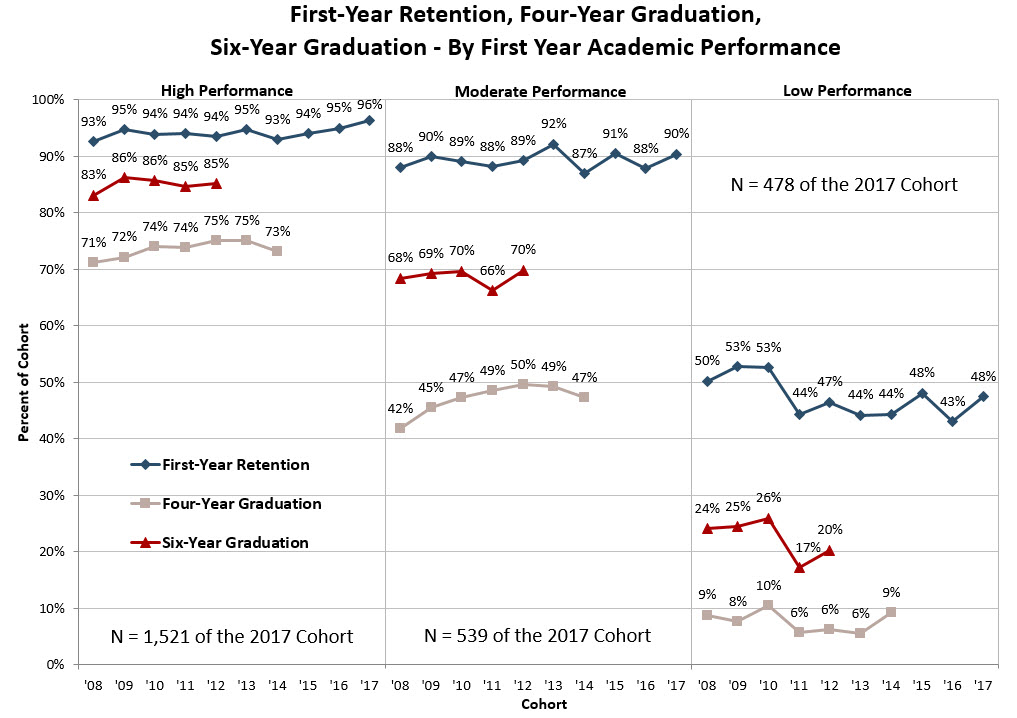DePaul's research has uncovered how academic performance and progress in the first year play a significant role in retention and graduation.
High performance in the student's first year is defined as earning a grade point average of 2.5 or higher AND completion of 48 or more credits of academic work. Moderate performance is defined as meeting ONE of these benchmarks, either a 2.5 or higher grade point average or 48 credits.
First-year retention is very high, at 96 percent, for students meeting high performance, and students with moderate performance persisted at a rate of 90 percent. First-year retention falls off dramatically for students in the low performance group. The data show that more than 8 out of 10 high-performing students and 7 out of 10 moderate-performing students graduated in six years, compared to only 2 out of 10 low-performing students.
Although students in moderate performance have solid six-year graduation rates, the chart below illustrates that students in high performance have superior four-year graduation rates, over 70 percent, and this is important for students concerned about on-time graduation.
These outcomes hold true whether a student entered DePaul in the top third of the class or bottom third of the class in terms of incoming academic preparation. First-year academic performance is the key driver of degree completion.

|
Low Performance |
Less than 37 credits, or GPA below 2.50 and between 37-47 credits
|
|
Moderate Performance |
GPA above 2.50 but between 37-47 credits, or GPA below 2.50 but 48 or more credits
|
|
High Performance |
GPA above 2.50 and 48 or more credits
|
Learn More
Read DePaul's "Trends in Freshman Retention and Graduation" annual report.
Download